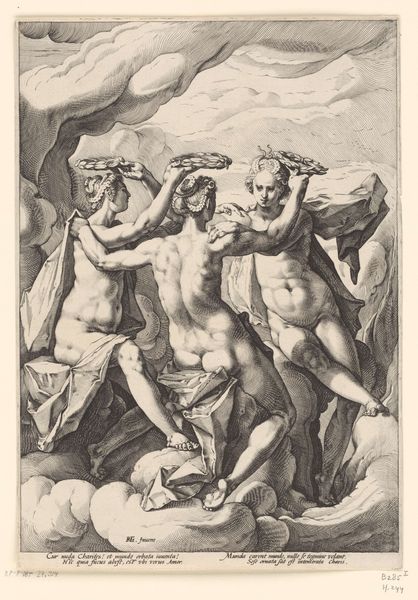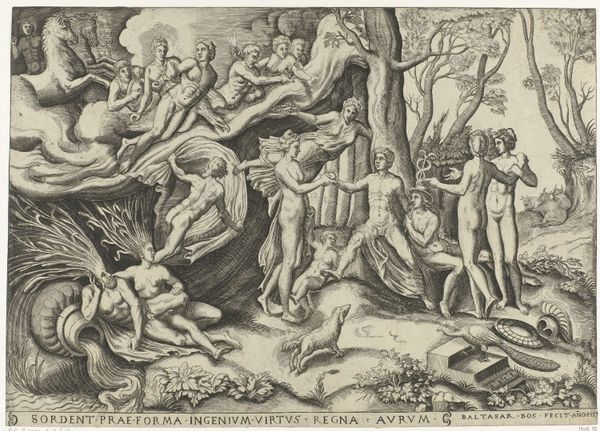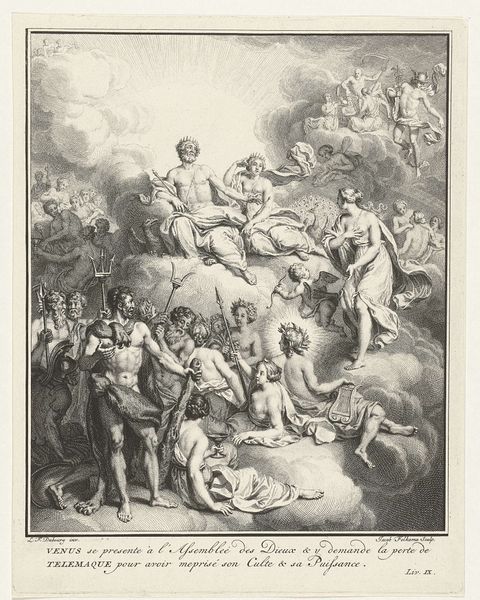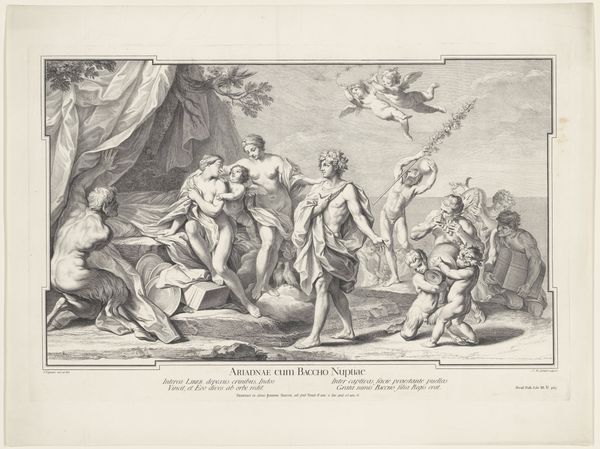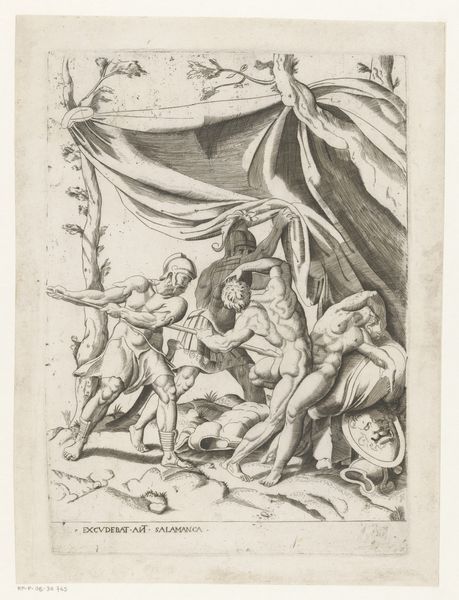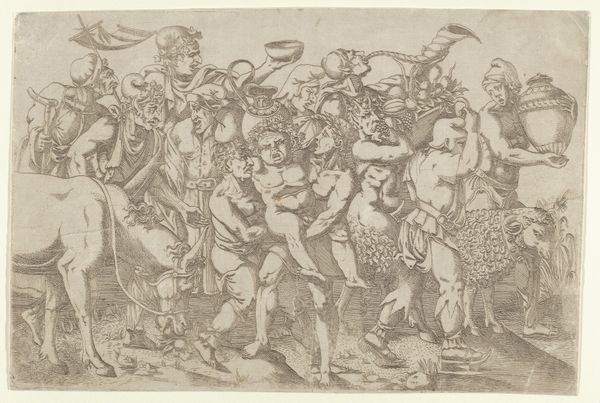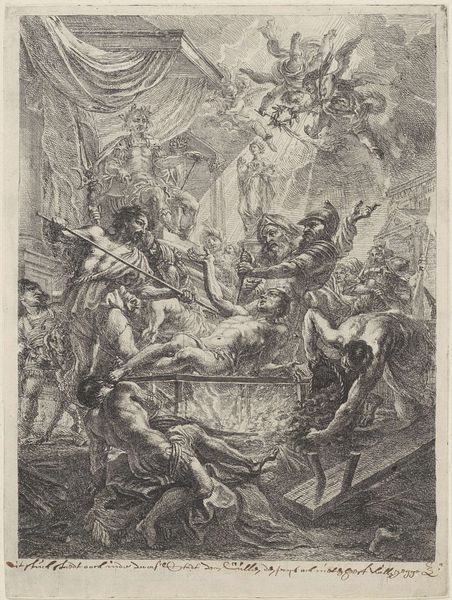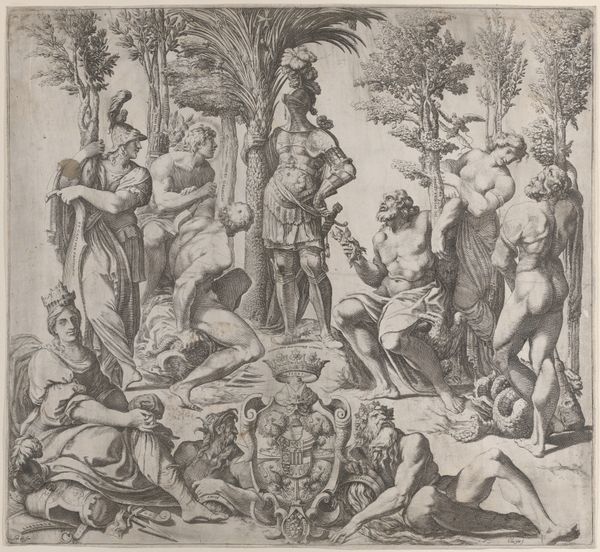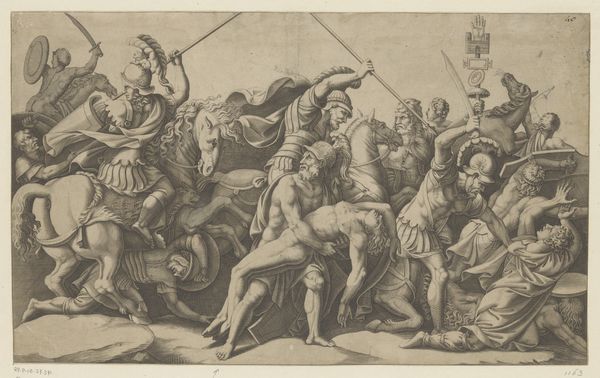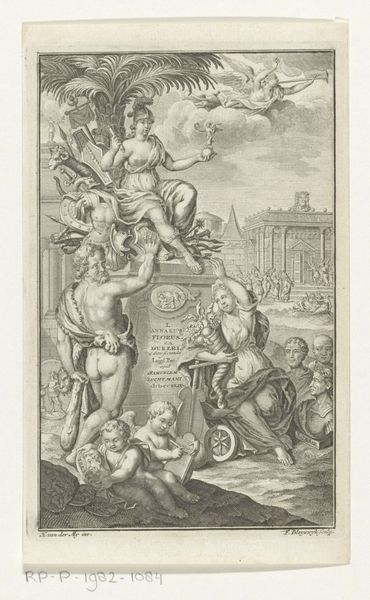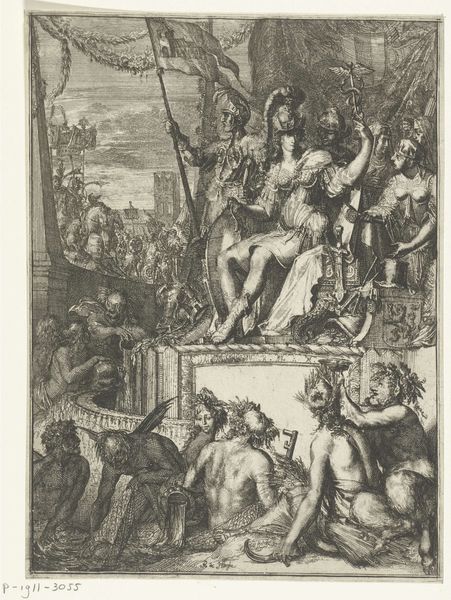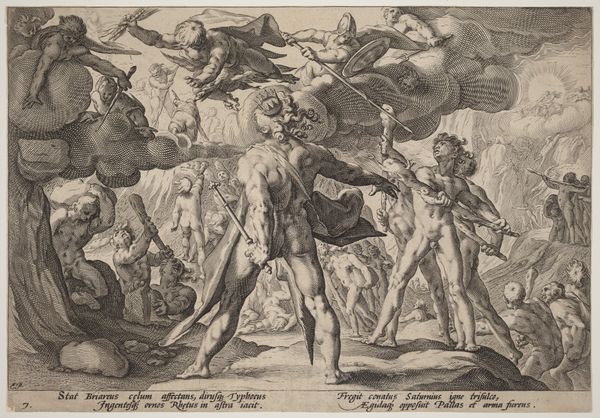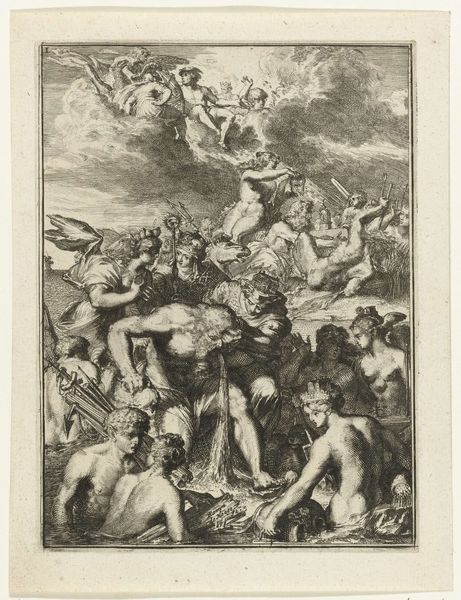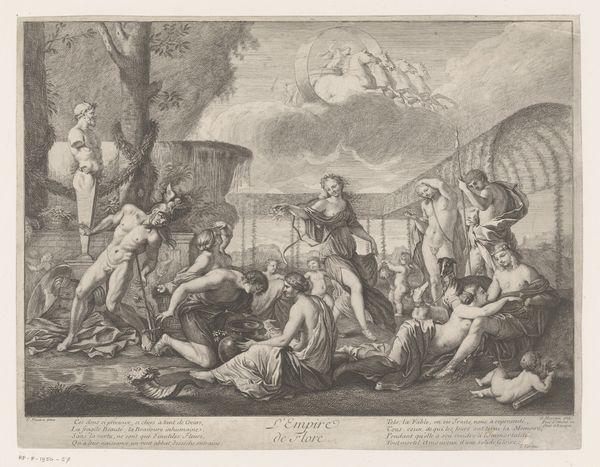
print, engraving
#
ink drawing
#
allegory
#
baroque
# print
#
figuration
#
line
#
history-painting
#
nude
#
engraving
Dimensions: height 300 mm, width 209 mm
Copyright: Rijks Museum: Open Domain
Jacob Matham created this print, "The Seven Virtues," sometime between 1586 and 1631, using the technique of engraving. Engraving involves using a tool called a burin to incise lines directly into a metal plate, which is then inked and printed. Look closely, and you can see how the network of fine lines defines every form in the composition. The material properties of the metal plate dictate the precision and detail achievable through this process. In Matham's time, printmaking was a crucial industry. It was a way of disseminating images widely and efficiently, connecting distant cities and cultures. The skill required to produce engravings like this reflected a highly specialized labor force, producing works that were both artistic and commercial. The act of engraving, with its emphasis on skill and precision, elevated the status of printmakers, blurring the lines between craft and fine art. By appreciating the labor and technical skill embedded in "The Seven Virtues," we recognize printmaking not just as a means of reproduction, but as a distinct and significant art form in its own right.
Comments
No comments
Be the first to comment and join the conversation on the ultimate creative platform.
